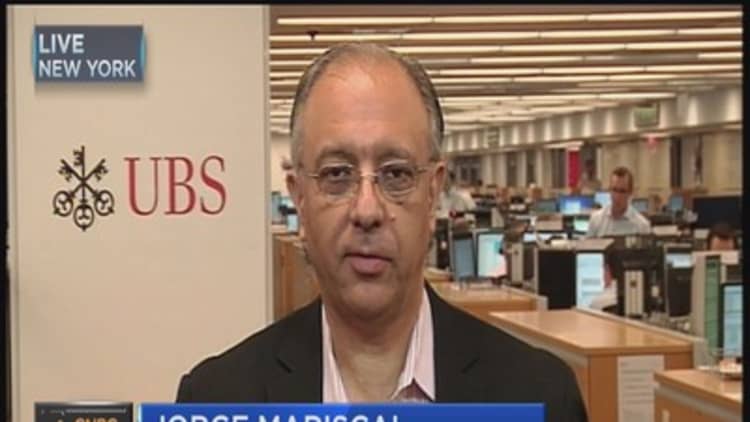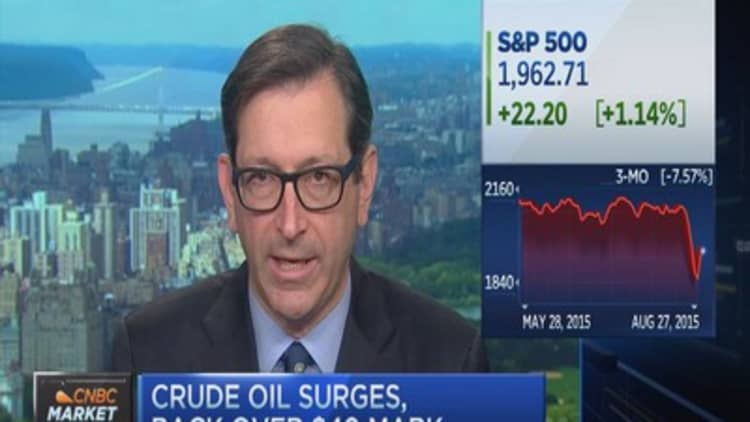
While a nearly 40 percent decline in China's Shanghai composite index over the last three months sounds haunting enough to stoke images of a global selloff, year to date the index is down less than 5 percent.
Considering that fact, many investors were surprised to see Chinese authorities rush to add stimulus measures and regulations to give domestic markets a boost. Perhaps the "panic" was a sign things were worse in China than they seemed, according to Jorge Mariscal, UBS' emerging markets chief investment officer.
"We're looking for signs they're going to be pulling back from interventionist measures," he told CNBC's "Squawk on the Street" in an interview, adding that the economy looked stable before the stimulus.
Read MoreMarket talk suddenly turns to specter of QE4
Citing recovering housing numbers that continued to improve before Chinese regulators moved to cut interest rates, Mariscal questioned the necessity of intervention, calling it "a change of regime that throws a new set of risk factors into global currency markets."
RBC's Chief International Economist Eric Lascelles similarly questioned the move.

"It's a bit perplexing why policymakers felt the need to support [its market], but in the end that's really of very limited consequence to the rest of us, simply because most of those stocks are domestically held," he said.
Read More What US and Chinese stocks have in common
Of more consequence for global investors would be any further moves in currencies, according to Mariscal, who noted China could be suffering from dwindling capital reserves.
"How quickly reserves continue to be eroded—and if they continue to be eroded—that's going to be difficult to for the central bank to lower interest rates and further stimulate the economy," he said, adding it would be a key indicator for economic stability.
As for the stimulus that was already applied, Mariscal said he expects the positive effects to begin surfacing by the fourth quarter and to continue into next year.
—CNBC's Tom DiChristopher contributed to this report.


